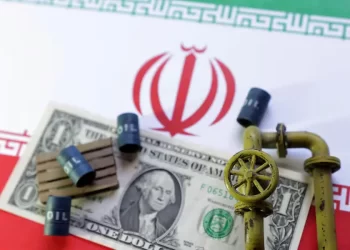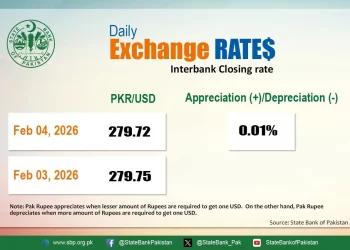Fauji Fertilizer Company (FFC), one of Pakistan’s largest fertilizer producers, posted a consolidated profit-after-tax of Rs22.59 billion in the quarter ended September 30, 2024, up nearly 45% compared with Rs15.62 billion in the same period of the previous year.
According to the consolidated profit and loss statement shared by the company at the Pakistan Stock Exchange (PSX) on Monday, the board of directors met on October 28, 2024, to review the company’s financial and operational performance.
Despite high profits, the BoD announced a nil cash dividend for the quarter ending on September 30, 2024.
FFC said no interim dividend was announced by the BoD “in view of the ongoing merger and to ensure equitable distribution of dividends to all the shareholders of the merged entity”.
“The board however remains committed to resume its payout trend upon successful completion of the amalgamation process,” FFC said.
Fauji Fertilizer Company makes Rs25bn profit in three-month period
Earnings per share (EPS) were recorded at Rs17.51 in 3QCY24 as compared to EPS of Rs11.92 in the same period of the previous year.
During the period, FFC saw its revenue rise to Rs57.72 billion, an increase of nearly 11%.
The company’s gross profit increased by nearly 57%, clocking in at Rs30.68 billion in 3QCY24, compared to Rs19.58 billion in SPLY. Resultantly, FFC’s profit margin improved to 53.15% in 3QCY24, as compared to 37.5% recorded in SPLY.
FFC’s ‘other income’ also increased to Rs5.63 billion in 3QCY24, compared to Rs4.74 billion in SPLY, an increase of nearly 19%.
On the other hand, the company’s finance cost declined by nearly 16% from Rs1.66 billion in 3QCY23 to Rs1.40 billion in 3QCY24.
The company’s other expenses rose significantly to Rs2.1 billion in 3QCY24, up nearly 60%, as compared to Rs1.31 billion in SPLY.
During the quarter, the company earned Rs7.45 billion in share of profit of associates and joint ventures, an increase of 97% as compared to SPLY.
The company informed that it sold Sona Urea “at much lower rates compared to international prices, leading to an estimated benefit of $320 million for local farmers and preventing a significant outflow of the country’s foreign currency reserves”.








